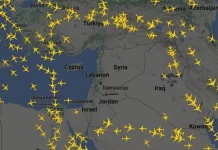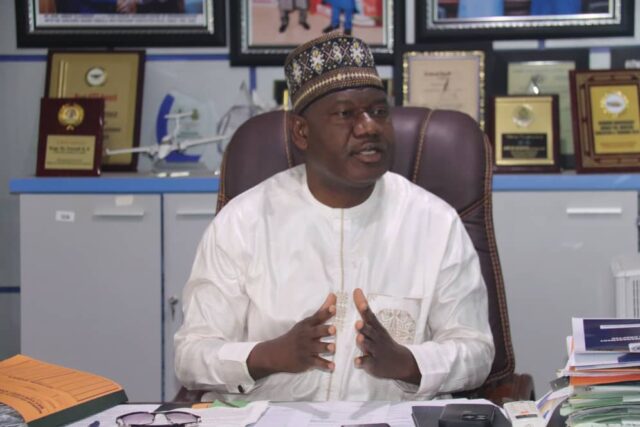The Nigerian College of Aviation Technology (NCAT), Zaria, is undergoing sweeping reforms to address staff attrition, infrastructure decay, and limited global reach, as it prepares to launch a long-awaited Boeing 737 flight simulator. Rector and CEO, Dr. Danjuma Ismaila, disclosed that the college is implementing strategic policy and infrastructure overhauls aimed at boosting its capacity, retaining top talent, and positioning Nigeria as a global hub for aviation training.
One of NCAT’s most pressing challenges is its inability to retain skilled professionals due to low remuneration. “When I assumed office, one of the first challenges I encountered was the alarming rate of staff exits. Right now, NCAT staff are the lowest paid among all aviation agencies in the country,” Dr. Ismaila stated during a recent aviation correspondents’ training sponsored by the Nigeria Civil Aviation Authority (NCAA). “We invest in training and capacity building, but these professionals leave for better-paying jobs in private airlines or abroad.”
In response, the college is pursuing salary reforms and a retention strategy, including bonding agreements to ensure that personnel trained at NCAT’s expense commit to staying within the system for a defined period. “You can’t receive training and walk away to serve another institution. We’re going to sign bonds and ensure certifications issued for NCAT training are used to build our internal capacity,” he said.
To strengthen this plan, NCAT is in discussions with the National Salaries, Incomes and Wages Commission for a special salary structure—similar to the model used for the Petroleum Training Institute (PTI) in the oil and gas sector. “PTI salaries closely match what obtains in the oil industry, and that has helped them retain their experts. We need the same parity to stabilize our workforce,” he emphasized.
The reform efforts extend beyond staff retention to infrastructure modernization. Many of NCAT’s buildings date back to the 1960s and no longer meet international standards. Dr. Ismaila revealed that the college is prioritizing upgrades to classrooms, accommodations, and training equipment to attract international students and aviation professionals. “We want a foreign student to walk into NCAT and feel the same level of confidence and respect they would get in any other global aviation training center.”
With rising enrolment and growing interest from African and international markets, the need for adequate student accommodation has become urgent. The Rector disclosed that limited capacity has forced the institution to lodge trainees outside the campus. “Some of our clients from French-speaking African countries and Egypt have had to stay offsite due to insufficient infrastructure. This is a limiting factor, especially when our pricing is more competitive than most global aviation schools.”
The institution is also investing in simulation technology to improve training delivery and expand capacity. Chief among these is the delayed Boeing 737 flight simulator, which has remained non-operational for five years. Dr. Ismaila constituted a task force to resolve all technical and regulatory issues and has engaged the NCAA to expedite the certification process. “We expect the simulator to become operational in the next one or two months. Once certified, it will serve not just Nigeria but also Asia and other regions where simulator access is limited. This will boost our foreign exchange earnings and put NCAT on the global map.”
Additionally, the college is exploring acquisition of other aircraft simulators based on demand, with plans to start with the Boeing 737 and potentially expand to the CRJ, which is gaining popularity in Nigeria. “It’s a business decision—we can’t invest in simulators for every aircraft. But with the right government support, we can scale up gradually.”
Dr. Ismaila remains cautious about projecting NCAT’s full training capacity for 2025, citing the lack of adequate funding. “I can’t give a specific figure for the funding gap, but key projects like simulator deployment and infrastructure upgrades are on hold until we receive financial backing. The potential is there. Once we operationalize these simulators, we expect to see demand spike not only locally but also internationally.”
He concluded by affirming that NCAT has the regulatory alignment and instructional quality to meet global standards, operating under the oversight of NCAA, which itself is ICAO-compliant. “Our certificates carry global weight. An ATPL certificate issued here is as valid as one certified by the UK CAA. That positions us to train pilots and air traffic controllers from around the world—and we’re already doing that.”
With strategic reforms in motion and renewed government engagement, NCAT is charting a new course toward global relevance, workforce stability, and increased national revenue through aviation training.













